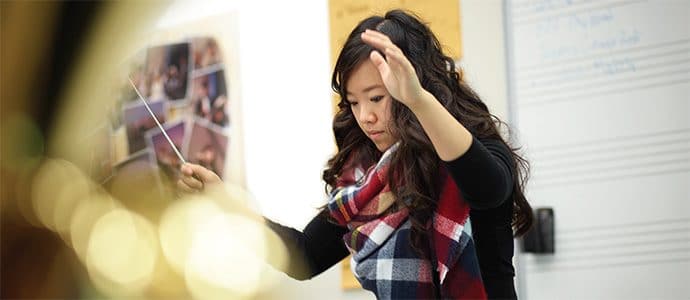Private School
4 min Read
Selecting a private school where your child will thrive

September 19, 2018
Private School
4 min Read

September 19, 2018

How do you go about selecting a private school where your child will thrive? Dr. Glenn Zederayko, Head of School, Glenlyon Norfolk School offers some great suggestions.
Really good private schools focus on providing outstanding educational and life experiences. Be honest with yourself when evaluating what school meets the needs of your child. Putting a round peg in a square hole will not make the peg square. Your goal is to determine which school will help your child reach their full potential and be happy and content.
Consider those, but also much more. One ‘best’ school that fits every child perfectly is a myth. Choose the best fit for your child and your family. Schools offer unique approaches to teaching and learning, and some may not work for your child. For example, some schools are highly competitive, while others are very collaborative. Think about what suits your child best.
Being well-rounded and capable of exploring new opportunities is key to being happy and successful. Ask how the school will support your child in their passion, yet ensure they engage in all areas.
Ask for each school’s three- to five-year university placement records, and a detailed explanation of how its program and university counselling supports students. Ask about their graduates’ record beyond just getting in; strong schools ensure graduates are equipped to do well at university, in post-graduate studies and in their careers.
Small classes alone do not ensure teachers really know their students. Ask what teachers do to individualize and how the school delivers enrichment and remediation. Does it offer kids opportunities to pursue interests? What about advisor programs that ensure your child has a well-informed, dedicated teacher?
Schools’ biggest expenses are the salaries and benefits required to attract, develop and retain great people. Compare the financial statements of schools you are interested in to understand the importance placed on having the best staff. Ask school officials how they hire the best people. You should also query them about faculty and staff turnover at the school.
Some parents believe good schools pile on homework to ensure children succeed in a competitive, uncertain work force. The effectiveness of this approach is debatable. Homework should be meaningful and develop higher level thinking skills, such as applying knowledge and skills to solve problems. Developing an eager, disciplined approach to learning is important. But hours of memorizing will not help your child become a creative, innovative thought leader and problem-solver.
The first consideration is that the school keeps students safe. Next, computer labs tend to be passé. Schools don’t make students share pencils; the same should be true about technology. You may hear every student has a Chromebook or an iPad, but how do students use these devices? They should be integrated into instruction and open up the world. Technology can be seductive without being highly effective as a learning tool. For example, one student using an interactive board while 19 others look on is not engaging every student.
Making sure students look after each other should be one of the first things you hear about when you visit. Does the school handbook promote clear guidelines that promote positive interactions? Do programs bring older and younger students together to promote constructive relationships? When you visit, do students seem happy? Are they polite and respectful? Do teachers and administrative staff interact with students in a cheerful, encouraging, courteous manner?
Dr. Glenn Zederayko is Head of School at Glenlyon Norfolk School in Victoria, B.C. He has inspired students, staff and parents in five private schools in three provinces for more than 30 years.